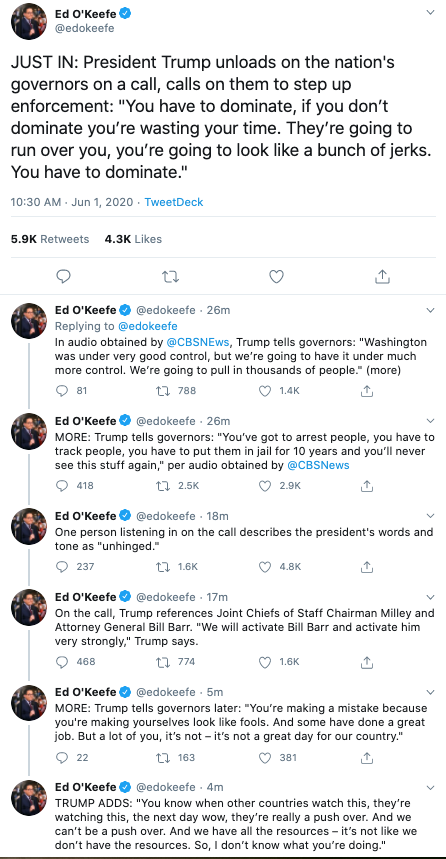Perhaps surprisingly, Daniel Tenreiro's criticism of Modern Monetary Theory, "
What The Deficit Myth Lacks," at least avoids the usual hysterical bad-faith anti-MMT propaganda: Tenreiro does not froth at the mouth screaming
hyperinflation! and
Venezuela. Indeed, Tenriero grants MMT's most important claim: the United States can presently use government spending to use idle productive resources. However, seems to understand neither the basics of MMT nor basic economic theory.
Tenreiro observes that MMT (following Keynes) prescribes government spending when the economy is below full employment and MMT predicts that government spending will cause inflationary only when the economy is at (or above) full employment. However, these theories do not simply restate the
Phillips Curve; more over, modern theory has not thoroughly undermined the Phillips Curve.
We can use the Phillips Curve to say that
if unemployment is above the "natural rate" (momentarily ignoring the political choices embedded in the natural rate of unemployment)
and inflation is below the corresponding natural rate, then rather than shifting the Phillips Curve, government spending should just move both unemployment and inflation to their natural rates. Indeed, since the GFC, most capitalist economies have seen both too-high unemployment and too-low inflation, indicating that the government can indeed spend extra to use idle productive resources, i.e. labor and existing industrial capacity. Such spending is inflationary
by design: a little inflation is a Good Thing.
It is only when unemployment is at or below the natural rate, indicating that the private economy (and ordinary government spending) is using all available labor, that government stimulus spending will crowd out private economic activity. This crowding out causes the Phillips curve to shift outwards, causing inflation with no corresponding increase in long-run unemployment, rather than causing movement along the curve to equilibrium.
Tenreiro mentions the Job Guarantee, an important and perhaps intrinsic MMT policy prescription. His sarcasm aside (the Job Guarantee does not "solve[] the economy"), he correctly states the MMT position: the Job Guarantee will "spur economic growth by employing workers who would
otherwise be idle [emphasis added]." The qualification is critical, but Tenreiro perhaps does not grasp its implication.
Tenreiro does not appear to understand ECON 101 national accounting nor the usual rationale for government spending. Tenreiro's complaint here is that the Job Guarantee "would have a negligible effect on output, because by definition it would employ workers in the production of goods and services that private firms consciously avoid." Basic national accounting assumes that government spending counts directly to output: it's the $G$ in $Y=C+I+G+(X-M)$.* Tenreiro's deeper fallacy is that
all government spending — roads, bridges, schools, police, the military — is
by definition useless: if it were useful, private investors would find it profitable. There's nothing about MMT or the Job Guarantee that's any different from any other government spending.
*In English, output (Y) equals the sum of consumption (C), investment (I), government (G) and net exports (X—M)
Tenreiro shows his disdain for public goods with the usual conservative contempt for alternative "clean" energy. But of course alternative energy hasn't "flopped". It's doing quite well, and the Germans and Chinese are killing us in the sector. The U.S. is lagging behind because it's actually
productive, and there's no way to use alternative energy to loot American consumers. More importantly, the job guarantee's primary role would be not in developing but
converting the current electricity, heating, and transportation infrastructure to methods that won't kill us all from global warming. Again, ECON 101 (at least as I teach it) tells us that
public goods cannot generate profit in a free market because of the free-rider problem. It is worth repeating that the social value of governments providing public goods is
not a feature unique to MMT; it's standard economics.
Finally, Tenreiro absurdly objects that MMT isn't what
he wants it to be. Tenriero wants a supply-side theory of long-run economic growth; MMT is a demand-side theory of short-run utilization of idle resources. True, MMT fails to address supply-side economics, nor does it promise to do away with war, disease, famine, death, mopery on the high seas, nor the heartbreak of psoriasis. So what? Criticize the theory for what it is, not what it does not even pretend to address.
